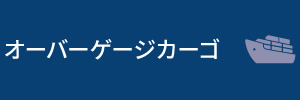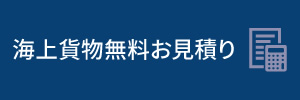HOME > ジャパトラブログ&ニュース
2020年03月04日
コラム/最適物流の科学㊼
最適物流の科学
弊社社長の菅が、2017年12月に『最適物流の科学―舞台は3億6106万平方km。
海を駆け巡る「眠らない仕事」』という書籍を出版しました。
そこで、本ブログでも、その書籍から抜粋した内容を
毎週1話ずつ、ご紹介していきたいと思います。
第四十七回となる今回は、「激しさを増す競争と集約化の流れ」というテーマで「世界的に進展する海運業界の再編」をお話しいたします。
↓
↓
——————————————————————————————————–
「世界的に進展する海運業界の再編」
二〇一七年七月、日本郵船、商船三井、川崎汽船の三社はコンテナ船事業を統合して新会社を設立しました。社名は「オーシャン ネットワーク エクスプレス ホールディングス」。これにより、日本で外航定期航路を持つ船会社は実質一社となりました。新会社の運航コンテナ船は二四三隻、コンテナ積載数換算では約一四四万TEUになり、業界シェアは世界六位となります。
こうした海運業界再編の動きは、日本に限らず世界規模で進行しています。二〇一六年二月、中国遠洋運輸集団(COSCO Group)と中国海運集団(China Shipping Group)が合併し、世界四位の規模となる中国遠洋海運集団(China COSCO Shipping Group)が誕生しました。同年七月には、世界三位のCMA CGM(フランス)がAPL(シンガポール)を買収しました。他にも、最大手のマースク・ライン(Maersk Line、デンマーク)がハンブルク・スード(Hamburg Süd、ドイツ)を、ハパックロイド(Hapag-Lloyd、ドイツ)がUASC(クウェート)を、前述の中国遠洋海運集団がOOCL(香港)を、それぞれが買収する交渉を進めるなど、近年は業界内で大きな動きが相次いでいます。
海運業界では、世界的規模で船会社同士が結びつくアライアンス(同盟)が結成されています。以前は世界一位のマースク・ライン(Maersk Line)と世界二位のMSCによる「2Mアライアンス」、日本郵船や商船三井が加盟していた「G6アライアンス」、川崎汽船などが加盟していた「CKYHEアライアンス」、CMA CGMらによる「OCEANTHREE」といったアライアンスがありました。
近年の合併・買収の動きに伴い、世界の船会社の多くは二〇一七年四月以降、「2Mアライアンス」と「OCEANアライアンス」、そして邦船三社が含まれる「ザ・アライアンス」という三大アライアンスへと集約されました。
目まぐるしく業界再編が進む背景には、海運業界が厳しい不況の波にさらされているという現状があります。これをもたらした一因が、先に述べたコンテナ船の大型化による船腹量の増加です。
輸送効率を上げてコスト削減を追求したことが船腹の供給過剰を招き、それが運賃下落をもたらし、結果として経営を圧迫しています。海運業界は今、こうした悪循環の渦中にあるのです。二〇一六年の韓進海運破綻もその中で起きた出来事でした。
そうした不況の波を乗り越えるため、日本や中国などの大手船会社は、経営規模を拡大して競争力を高めるべく合併という道を選択しました。また船会社同士が世界的規模で提携を深め、業務の効率化を目指そうとする動きの中で、アライアンスは三つに集約されました。
実際、定期航路を構築・運航するには多大なコストが掛かります。各船会社が独自にコスト削減を進めれば競争がより激化し、経営体力の消耗にも繫がります。消耗戦を避けるため、競合する部分を統合して効率化を図るのは合理的な選択だといえるでしょう。また定期航路において、アライアンス内で共同運航を実施し、供給量の調整を図ることも効率アップという点ではやむを得ない決断だといえます。
しかし、こうした動きは必ずしも荷主の利益にはなりません。繰り返しになりますが、合理化によって船の便数が減れば、荷主は不便を強いられます。荷主にとって重要なのは、船の大きさではなく、船の便数の多さです。
寄港頻度が多いに越したことはありません。もちろん、コスト削減によって運賃が安くなるのであれば、それ自体は歓迎すべきことです。しかし、それと引き換えに利便性(寄港頻度)が大きく損なわれる結果はどの荷主も望んでいないでしょう。
競争は業種の垣根を越えて
海運業界で競争が激化しているのは船会社だけではありません。関連業種での競争も年々厳しくなっています。
第三章で見たように、国際物流に携わる事業者は多岐にわたります。実際に船を持つ船会社だけでなく、乙仲、倉庫業者、通関業者など国内物流を得意とする会社や、航空輸送をメインとするエアーフォワーダー、ハードを一切持たないフォワーダーも貨物輸送の委託を受けます。さらに、外資系企業も日本の市場に多く参入してきています。
各社のパンフレットやホームページを見ると、本来専門とする事業以外にさまざまな業務に携わっていることがわかります。これらの企業が業種の垣根を越えてさまざまな業務を請け負うようになった背景の一つとして、政府が進める規制緩和があります。たとえば、第二章で貨物利用運送事業法について触れましたが、この中で第一種利用運送事業については、二〇〇三年の規制緩和により、それまでの許可制から登録制に変更されています。この法改正によって、他業種からの新規参入が容易になりました。他の理由として、業務の多角化によって少しでも利益を増やしたいという事業者側の思惑、ワンストップで委託できる会社を利用したいという荷主側の要望の高まりも挙げられます。
事業者間で健全な競争が生まれ、価格やサービス、利便性が向上するのであれば、こうした傾向は望ましいといえるでしょう。しかし実際は、他業種への参入が過当競争を招き、同時に荷主にとっては事業者の違いや特徴がわかりづらくなるというデメリットを生んでいます。従来は各事業者の棲み分けがある程度、明確になっていました。内陸でのトラック輸送は運輸業者、倉庫での貨物管理は倉庫業者、通関業務は通関業者が担い、フォーワーダーがそれらをコーディネートする役割を果たすという形があり、必要に応じて各社が連携してその関係を維持していました。
それが今では激しく競合する関係に変わってきているのです。
最近は流通業界でも、総合スーパー、ドラッグストア、ホームセンター、コンビニエンスストアなどの垣根がなくなる傾向が見られますが、国際物流業界でも同じような現象が起きているのです。
- Fiercer competition and integration flow
Restructuring of the shipping industry on a global scale.
In July 2001, the three major marine transport companies –
Nihon Yusen, Shosen Mitsui and Kawasaki Kisen Kisen – integrated their container ship businesses and established a new company. The company was named is “Ocean Network Express Holdings”. As a result of this integration, the shipping company that has the regular international navigation routes has just become one company in Japan. Container vessels operated by this new company number 243, the number of the container loading equivalent is about 1,440,000 TEUs, and its industry business share is the sixth place in the world. These shipping industry reorganization movements are progressing not only in Japan but on a global scale. In February 2016, the China Ocean Transportation Group (COSCO Group) merged with the China Shipping Group. As a result, China COSCO Shipping Group, the world’s fourth largest entity, was born. In July of the same year, CMA CGM (France), the world’s third largest, bought APL (Singapore).Besides, Maersk Line (Denmark), the biggest player, acquired Hamburg Süd (Germany), Hapagloid (Hapag-Lloyd, Germany) acquired UASC (Kuwait) and also the aforementioned China COSCO Shipping Group doing negotiations to acquire OOCL (Hong Kong). Recently there have been major moves one after another in the shipping industry.
In the shipping industry, alliances have been formed. As a result, shipping companies are connected with each other on a global scale. In the past, Maersk Line, the world’s No. 1 and No.2 MSC were merged to create the “2MAlliance”, “G6 Alliance” where NYK and Mitsui OSK Lines got affiliated, Kawasaki Kisen united with the “CKYHE Alliance ” and “OCEANTHREE came into existence “by CMA CGM’s merging with others.
Along with recent trends in the form of mergers and acquisitions, since April 1997 many of the world’s shipping companies have been consolidated into the three major alliances, “2 M Alliance”, “OCEAN Alliance” and “The Alliance” which includes three major Japanese companies.
In the background where the industry reorganizations are happening one after another is the current situation that the shipping industry is being exposed to the harsh economic recession. One factor that brought about these consolidations was an increase in the volume of vessels due to the enlargement of the container ships.
Pursuing cost reduction by raising transportation efficiency invites the oversupply of container ships, which results in a decline in freight rates and as a result pressures the management of shipping companies. The shipping industry is now in such a vicious circle. The collapse of the Hanjin Shipping in 2016 occurred in this context.
In order to overcome the waves of such recession, major shipping companies of Japan and China have chosen merging to increase the scale of management and enhance competitiveness. Along this line, the idea of creating alliances was promoted, giving birth to the three giants in the world with aims to deepen global partnership and to improve the efficiency of operations.
Competition goes beyond industrial barriers
In fact, it costs a lot of money to create and operate a regular route. Competition will intensify if each shipping company independently advances cost reduction and it can consume management energies negatively. It may be a rational choice to integrate competing domains and improve efficiency for the sake of avoiding the consumption of unnecessary management energies. Also, it is an unavoidable strategy to try to improve efficiency within the alliance by jointly operating and also by adjusting the supply volume on a regular route.
However, these attempts on the part of the shipping companies do not necessarily benefit shippers. Furthermore, shippers can be inconvenienced if the number of ships is reduced by enlargment and integration. What is important for shippers is not the size of the ship but the number of service or choice.
Of course, if the fare becomes cheaper by cost reduction, it is welcomed by shippers. But they do not want the consequences of great loss of convenience (calling frequency). Competition goes beyond industrial barriers.
Shipping companies are not alone in fierce competition within the shipping industry. Their competition with related industries is getting harder year by year. As we saw in Chapter 3, there are a wide range of business operators engaged in international logistics. Not only shipping companies that actually possess ships but also, companies specializing in domestic logistics, warehouse traders, customs brokers, air forwarders mainly for air transportation, but also forwarders without any hardware, can be commissioned to handle cargo transportation. In addition, many foreign-affiliated companies have entered many Japanese markets.
Looking at the brochure and website of each company, you can see that they are engaged in various fields of business other than their originally specialized realms. One of the reasons why these companies began to undertake various tasks beyond industrial barriers is the deregulation that the government plans. For example, we referred to the Law Concerning the Freight Utilization Transport Business Law in Chapter 2. With regards to Class 1 Utilization Transport Business, the deregulation in 2003 caused a major change from the previous permission system to the new registration system. This legal amendment made it much easier for new entrants from other industries. Other reasons for this legal change were related to the shipping companies’ desire to increase profit even slightly through the diversification of operations and to the shipper’s increasing desire to use the company that can be entrusted with a one-stop service.
Such a trend is preferable if sound competition can be created among business operators and better price, better service and greater convenience are seen there. In fact, however, the entry into other industries invites excessive competition, and at the same time, the shippers experience more disadvantage in discerning the differences and characteristics of business operators. In the past, the responsible realm of each business was clear to a certain extent. Trucking in the inland belonged to the realm of the transport company, cargo management in the warehouse was a warehouse trader’s domain, customs clearance was handled exclusively by the customs broker, and the forwarder played a role of coordinating them. As needed, each company cooperated and maintained the good relationships with other companies.
It is now changing into fierce competing relationships. Recently, even in the distribution industry, there is a tendency for the barriers of comprehensive supermarket, drugstore, home center, and convenience store to disappearn. Similar phenomena are occurring in international logistics industry.
——————————————————————————————————–
つづく。
次回は、「日本籍船・日本人船員が激減した背景は」というテーマで「外国籍船が九割以上を占める日本の実情」をお話しいたします。
ご興味を持っていただけた方、続きを一気にご覧になられたい方は、ぜひアマゾンでお求めください♪
最適物流の科学――舞台は3億6106万平方km。海を駆け巡る「眠らない仕事」
https://www.amazon.co.jp/dp/4478084297/
北米向けコンテナ海上輸送(FCL)のエキスパート!詳しくはこちらから。
工作機械・大型貨物・重量物などのフラットラックコンテナ、オープントップコンテナ海上輸送ならおまかせ!詳しくはこちらから。
コンテナのサイズ表はこちらから。
投稿者
ジャパントラスト株式会社
- ブログ (452)
- コラム/最適物流の科学 (52)
- ニュース (155)
- 2025年6月 (3)
- 2025年5月 (4)
- 2025年4月 (4)
- 2025年3月 (4)
- 2025年2月 (4)
- 2025年1月 (4)
- 2024年12月 (3)
- 2024年11月 (2)
- 2024年10月 (2)
- 2024年9月 (4)
- 2024年8月 (5)
- 2024年7月 (5)
- 2024年6月 (5)
- 2024年5月 (4)
- 2024年4月 (5)
- 2024年3月 (6)
- 2024年2月 (3)
- 2024年1月 (3)
- 2023年12月 (5)
- 2023年11月 (4)
- 2023年10月 (3)
- 2023年9月 (4)
- 2023年8月 (4)
- 2023年7月 (3)
- 2023年6月 (3)
- 2023年5月 (4)
- 2023年4月 (4)
- 2023年3月 (4)
- 2023年2月 (4)
- 2023年1月 (3)
- 2022年12月 (3)
- 2022年11月 (3)
- 2022年10月 (4)
- 2022年9月 (3)
- 2022年8月 (4)
- 2022年7月 (9)
- 2022年6月 (6)
- 2022年5月 (8)
- 2022年4月 (6)
- 2022年3月 (7)
- 2022年2月 (5)
- 2022年1月 (6)
- 2021年12月 (3)
- 2021年11月 (8)
- 2021年10月 (5)
- 2021年9月 (4)
- 2021年8月 (7)
- 2021年7月 (4)
- 2021年6月 (4)
- 2021年5月 (6)
- 2021年4月 (3)
- 2021年3月 (5)
- 2021年2月 (2)
- 2021年1月 (6)
- 2020年12月 (4)
- 2020年11月 (3)
- 2020年10月 (3)
- 2020年9月 (6)
- 2020年8月 (1)
- 2020年7月 (2)
- 2020年6月 (3)
- 2020年5月 (4)
- 2020年4月 (6)
- 2020年3月 (5)
- 2020年2月 (6)
- 2020年1月 (5)
- 2019年12月 (5)
- 2019年11月 (4)
- 2019年10月 (7)
- 2019年9月 (6)
- 2019年8月 (3)
- 2019年7月 (3)
- 2019年6月 (2)
- 2019年5月 (6)
- 2019年4月 (7)
- 2019年3月 (5)
- 2019年2月 (7)
- 2019年1月 (3)
- 2018年12月 (2)
- 2018年11月 (2)
- 2018年10月 (1)
- 2018年9月 (1)
- 2018年8月 (3)
- 2018年7月 (2)
- 2018年6月 (4)
- 2018年5月 (1)
- 2018年4月 (3)
- 2018年3月 (3)
- 2018年2月 (6)
- 2018年1月 (1)
- 2017年12月 (1)
- 2017年11月 (6)
- 2017年10月 (2)
- 2017年9月 (4)
- 2017年8月 (4)
- 2017年7月 (1)
- 2017年6月 (5)
- 2017年5月 (3)
- 2017年4月 (5)
- 2017年3月 (1)
- 2017年2月 (3)
- 2017年1月 (7)
- 2016年12月 (4)
- 2016年11月 (4)
- 2016年10月 (7)
- 2016年9月 (7)
- 2016年8月 (7)
- 2016年7月 (7)
- 2016年6月 (6)
- 2016年5月 (6)
- 2016年4月 (2)
- 2016年3月 (6)
- 2016年2月 (11)
- 2016年1月 (6)
- 2015年12月 (5)
- 2015年11月 (5)
- 2015年10月 (5)
- 2015年9月 (8)
- 2015年8月 (8)
- 2015年7月 (8)
- 2015年6月 (9)
- 2015年5月 (3)
- 2015年4月 (3)
- 2015年3月 (8)
- 2015年2月 (6)
- 2015年1月 (2)
- 2014年12月 (5)
- 2014年11月 (5)
- 2014年10月 (6)
- 2014年9月 (5)
- 2014年8月 (7)
- 2014年7月 (4)
- 2014年6月 (7)
- 2014年5月 (3)
- 2014年4月 (6)
- 2014年3月 (3)
- 2014年2月 (6)
- 2014年1月 (3)
- 2013年12月 (2)
- 2013年11月 (6)
- 2013年10月 (3)
- 2013年9月 (5)
- 2013年8月 (5)
- 2013年7月 (4)
- 2013年6月 (2)


